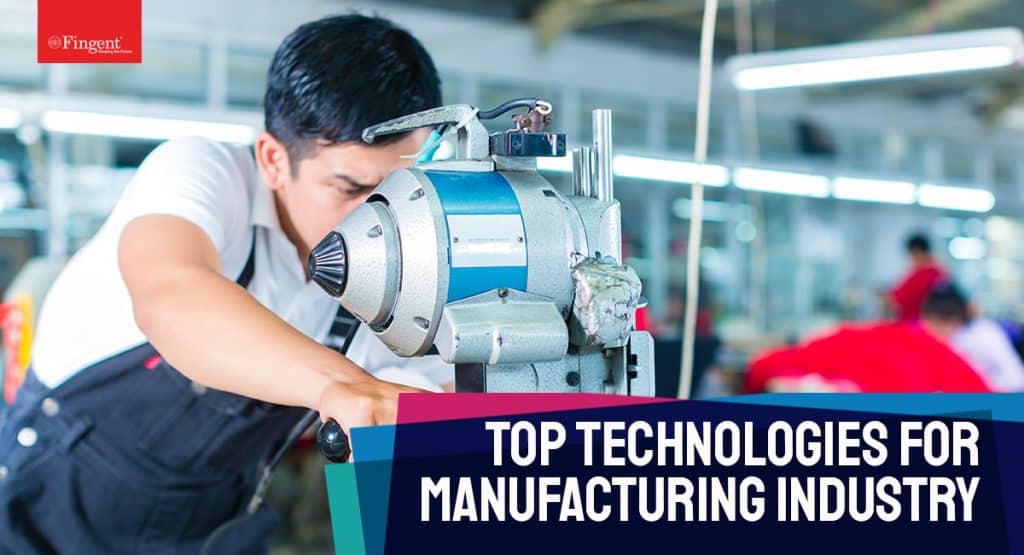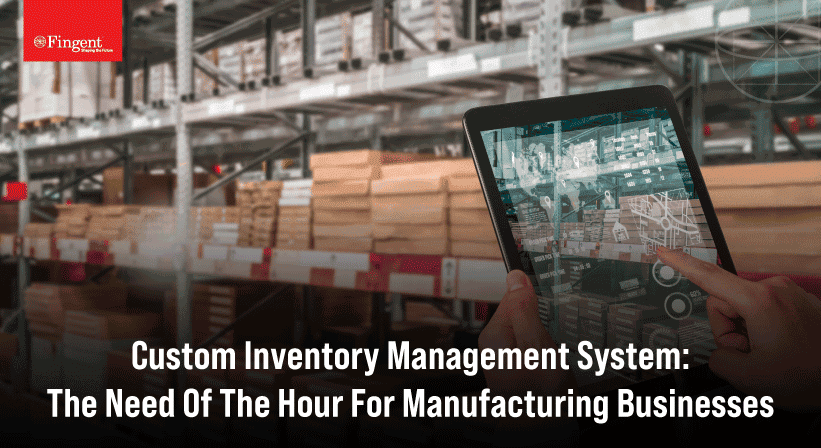A Look Into The Future Of Manufacturing Industry: The Challenges, The Opportunities, and The Technologies That Will Help Revolutionize
As the world deals with the short and long-term effects of Coronavirus, the manufacturing industry has suffered significant challenges during 2021. This knock-on effect is likely to be felt into 2022 as consumer demand and spending habits have transformed during the pandemic.
The pandemic demonstrated that major events can have a profound impact on manufacturing operations. Fluctuations between local and national lockdowns have directly impacted the manufacturing industry. Among various other things, it has led to delaying tax bills, postponed mortgage payments.
Knowing what challenges await manufacturing industries will help you and your team come up with the best strategy to achieve success in 2022. So, this article will cover some of the biggest challenges manufacturing industries will face in 2022. We will also look into how these industries can approach the challenges with the help of technologies.
Top challenges prevailing in the manufacturing industry-2022
1. Need to increase sales and revenue
The pandemic made businesses lose several thousands of dollars pushing manufacturing industries to put extra effort into recouping financial losses. Some companies chose to double up on their marketing efforts.
However, the right step would be to create a strategy to start building the business’s pricing power. Building a price power is the surest way to enjoy sustainable earnings.
2. Labor retention
The pandemic era has made it challenging to tackle labor retention issues among the workforce. As the pandemic continues, it is become increasingly hard to find experienced and motivated workers.
To complicate matters, with a fair portion of workers are nearing retirement manufacturing industries are facing a looming shortage of skilled labor. The newer technologies require a workforce with top-tech skills.
3. Customer self-service capabilities
Manufacturers are ever concerned about delivering their products to customers on time. Though the technology makes it possible for customer self-service capabilities, it is not commonly used.
Customers find it frustrating to constantly contact manufacturers for updates on their orders, requests for new proposals, and so on. Customers prefer immediate access to information.
You can address this issue by simply keeping the needed data for customers in a self-service portal. This will allow your customers to retrieve a solution. Plus it can enable the sub-contractor to track and accept tasks assigned to him without bothering anyone.
4. Maximizing work with minimum staff
The social distancing protocol due to the pandemic has forced manufacturing companies to run the factories with lesser staff. This is the time to explore the implementation of more automation technologies.
Read more: Top 10 Technologies That Will Transform Manufacturing!

Most-followed technologies that enable manufacturers to stay on top of the challenges
As Industry 4.0 is still in progress, most manufacturing industries are shifting gears in an effort to automate their manual processes. And the challenges are accelerating this shift now more than ever. Take a look at the top opportunities new technologies bring to the manufacturing industry.
1. Machine Learning and Artificial Intelligence capabilities
The biggest asset of any company is its data. It is vital to use algorithms to use this enormous amount of data effectively. Humans cannot do this task as efficiently, quickly, and accurately as by AI-led technologies. This ensures your manufacturing is more productive and less wasteful.
According to a global survey conducted by McKinsey & Company, 44% of respondents report cost saving from AI adoption.
2. 3D printing
Manufacturing companies can greatly benefit from 3D printing technology as it can enable manufacturers to make faster and cheaper prototypes.
It can double the performance while lowering the cost by half. It is a cost-effective way to troubleshoot or test the products. It also enables manufacturers to produce products that are in high demand.
3. Smart factories with 5G
The fourth industrial revolution is ushering in an era of smart manufacturing that is enabled with connected devices over 5G networking.
These can make decentralized decisions as the 5G mobile network is faster and more powerful. It is capable of handling full integration of all the devices in a smart factory making it a default choice of manufacturers.
4. Internet of Things
Industrial IoT makes it possible to interconnect sensors and electronic devices that collect and exchange data. It drives AI and performs predictive analytics. IoT is changing the way products are made and delivered.
A study conducted by MPI Group revealed that roughly 63% of manufacturers believe that applying the IoT to products will increase profitability over the next five years.
5. Predictive maintenance
The manufacturing industry depends heavily on predictive maintenance technology. In the past, routine maintenance checks were scheduled to detect unnoticed malfunctions. But that would halt the production and cost money.
Today’s digital technology has enabled machines to send messages to notify workers if or when maintenance is required. These real-time alerts equip the maintenance team to identify and correct mechanical failures without downtime.
6. Shift in the scope of the job
As technology takes over repetitive tasks, employees will need new skills. These skills would include data analysis, software engineering, programming, customer service. R&D and product development, and so on.
7. Agility and responsiveness
Changing customer demands and market conditions require manufacturers to focus on improving responsiveness and agility. Responsiveness and agility are achieved when the time to create, receive, schedule, and process a customers’ order is reduced.
This will enable manufactures to match production cycles and product demand levels. Matching these two aspects can help manufactures pump their operations with greater agility.
Read more: ERP Systems for Manufacturing: How it Improves Business Process!

Fingent can help revolutionize your manufacturing company
Identifying improvement opportunities can help your manufacturing industry enjoy significant benefits. Fingent can help you improve your business process and facilitate growth toward building an incredibly smart manufacturing plant.
Fingent is an efficient web and mobile app development company with vast experience in crafting remarkable digital success stories for diverse manufacturing companies across continents.
We will help you to stay abreast with what may affect your business and provide you with potential solutions available. To help plan for 2022 contact Fingent!
Stay up to date on what's new

Recommended Posts

22 Nov 2023 B2B
Custom Inventory Management System: The Need Of The Hour For Manufacturing Businesses
In the competitive manufacturing world, being average won't secure a win. Businesses need technology to outperform competitors, reduce costs, and build a stellar reputation that echoes through the manufacturing jungle.……

18 Oct 2022 Manufacturing B2B
Smart Factory: How Is It Impacting The Manufacturing Industry?
Manufacturing has long been a driver of global prosperity and economic growth. We all see astounding growth as the manufacturing industry evolves and keeps up with changing consumer needs. This……

25 Mar 2022 Manufacturing
Cobots and The Future of Manufacturing: A Quick Glimpse!
The COVID-19 pandemic has accentuated the need for resilient supply chains and human-machine collaboration at work. Full or partial shutdowns, as well as social distancing regulations, impose factories and workspaces……

26 Aug 2021
6 Ways Odoo ERP Can Benefit Manufacturing Companies
Why Should Manufacturing Companies Leverage Odoo ERP? As the manufacturing industry flourish, the need for a centralized control mechanism to ensure streamlined and effective operations is turning imperative. Processes like……
Featured Blogs
Stay up to date on
what's new









